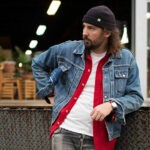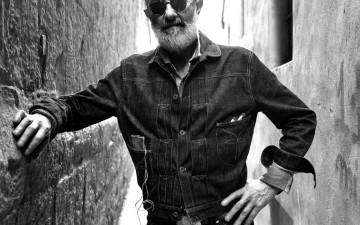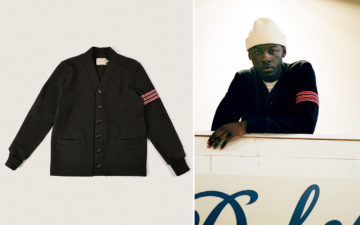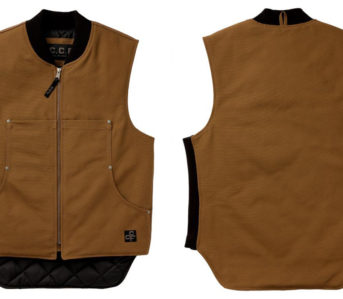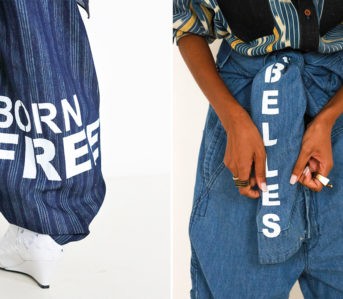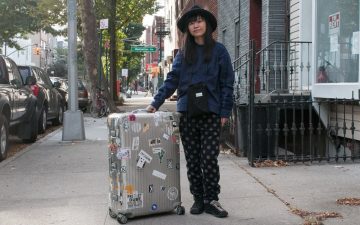
There are typically two different world’s when it comes to denim. There’s the tiny heritage market that we focus, with brands as small as one person doing production in any small facility that can run their minimums and meet their quality standards. And then there’s the mass market brands you find at the mall, that are making quantities of denim that could supply an army, with all of the state of the art production facilities and technology to match it.
The two rarely meet, but I’ve often wondered what would it be like if an independent designer had the resources of a large production facility at their disposal?
Well I don’t have to wonder any longer! Vertically integrated denim producer Soorty recently partnered with Oak & Acorn, an emerging denim label headed by designer Miko Underwood. We had the chance to speak with the people at Soorty who oversaw the project on their end: Melissa Urbina, US Manager of Design & Product Development; Ebru Debbag, Executive Director Global Sales and Marketing; and Umer Rehman, Vice President of Marketing. We also spoke with Miko about her experience working with Soorty, which is published in a separate interview.
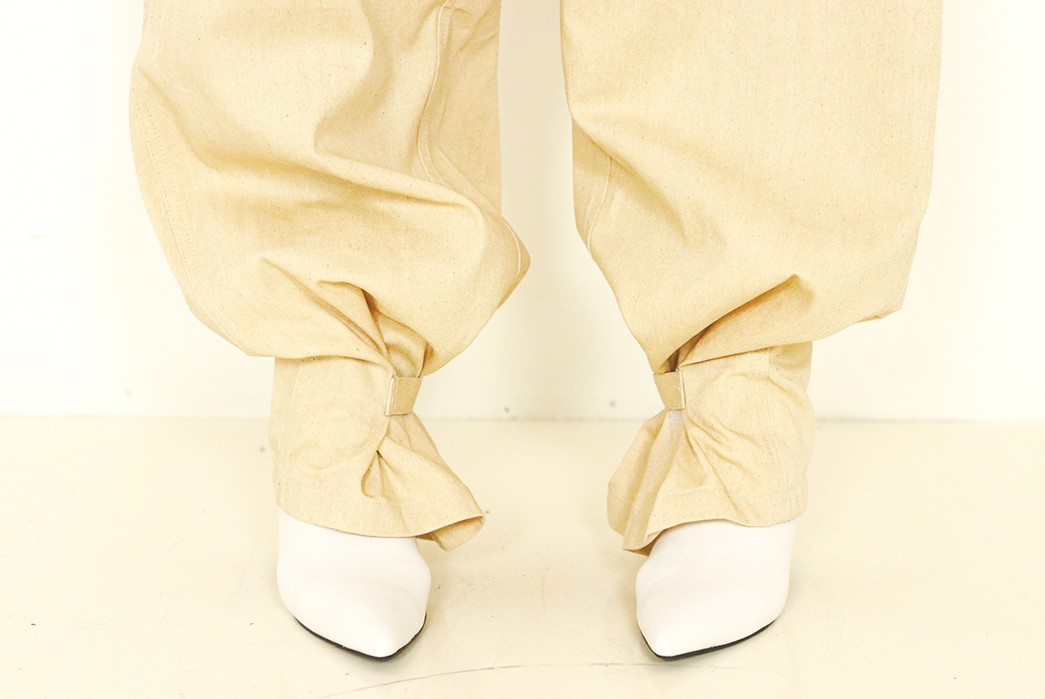
Heddels (David Shuck): How did the relationship develop between Soorty and Oak & Acorn?
Melissa Urbina: On a personal level I have known Miko for some years and she is a dear person to me. I have been witness to the evolution and growth of O&A, and what is important to Miko and O&A.
It was because of these sustainable ideals that I saw expressed in both O&A and Soorty, and a passion to prove that denim is a power for good, that initially prompted me to suggest we partner up, and develop a creative collaboration which developed into our current partnership.
Ebru Debbag: The collaboration has been spread across continents; happening at a time where we all have been looking for clues, compassion, creativity and beauty as well as more meaning. So after Melissa’s introduction and right at the first zoom meeting we mutually felt that we were on a good path that was not only about delivering a collection but delivering values.
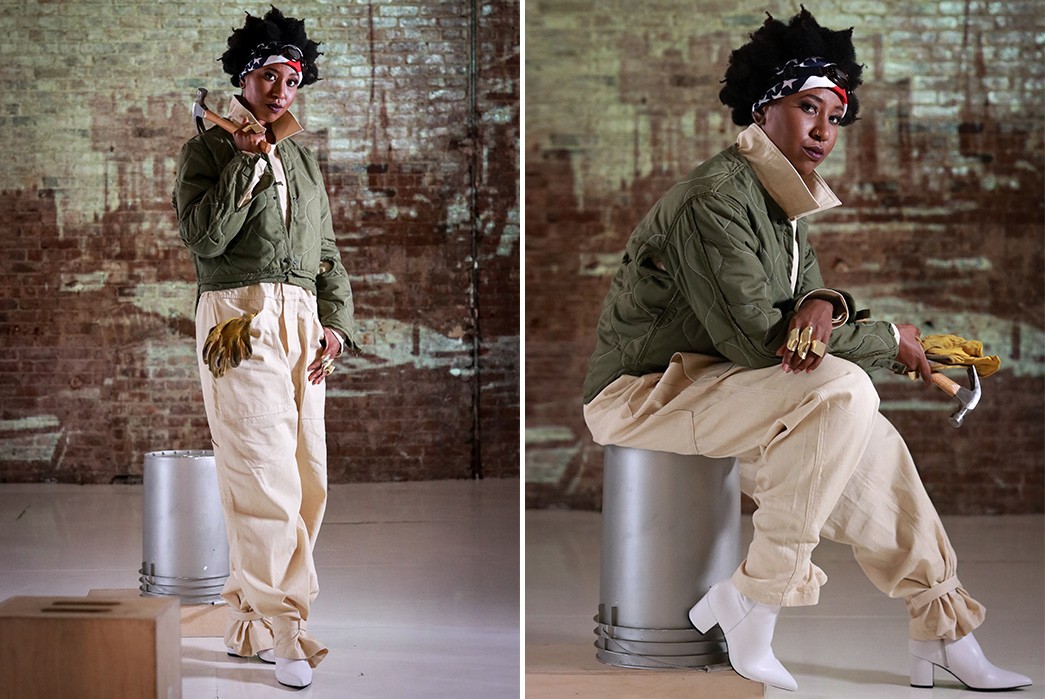
H: Does Soorty often work with smaller brands like O&A?
ED: Soorty collaborates with stakeholders in the industry and our Future Possibilities Platform has hosted industry insiders and denim heads where we have worked on unique designs more as training tools and representations. We also try to support industry platforms such as Denim Days with curated design and we also support our customers in case they need smaller runs.
The work that we have done with O&A is the first of its type; more so the brand is also very unique. It is more about standing up for values and changing a narrative—so this is our first.
MU: This is something relatively new for us as a company. We have done various collaborations with industry influencers and educational workshops but our collaboration with O&A is something new as it is a passion project that will actually be produced and in stores.
Umer Rehman: Soorty being one of the largest global denim apparel producers, is geared more towards production at scale. However, we truly believe in partnerships and collaborations where the different parties can add value. Our collaboration with O&A is a testimony to support the brand that stands out for its values. We find Miko to be standing strong to deliver a promise of sustainable fashion and committed to be an active voice in the sustainable denim space.
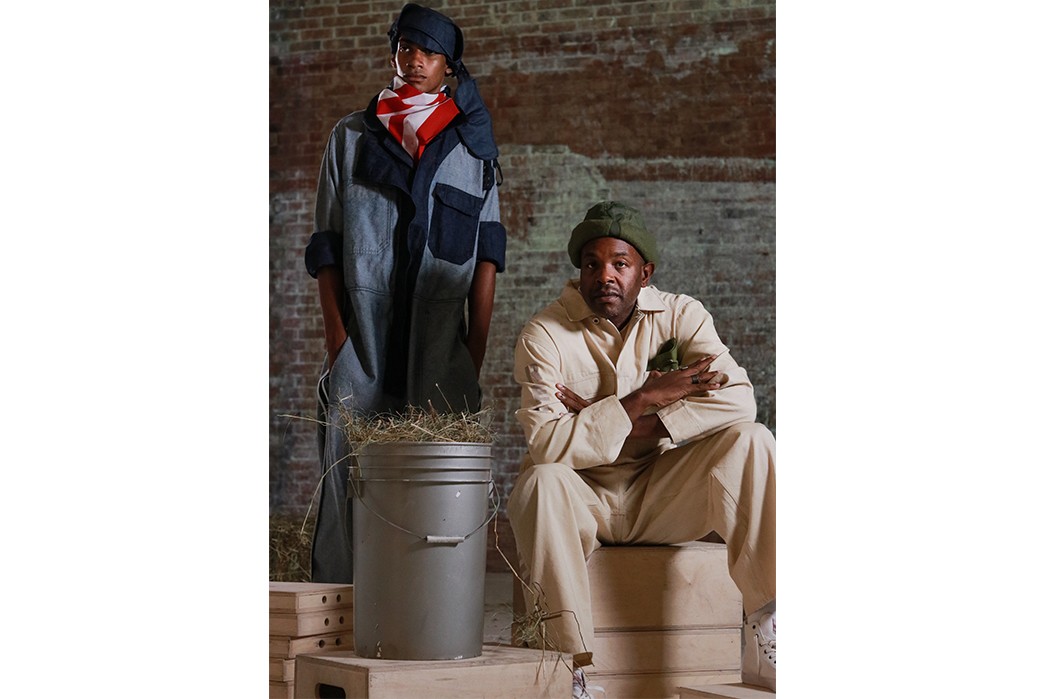
H: How does a small brand who wants to produce with you begin that conversation?
MU: Just by reaching out and starting a discussion.
UR: We, at Soorty, believe in collaborative approach with industry stakeholders to deliver sustainable fashion in the most befitting manner. Though as mentioned our infrastructure is geared more towards volume business we offer our services to all those who believe in delivering value to consumers through creativity and unique offerings.
ED: We would like to evaluate our relation with smaller brands as a collaboration and we would need to look at the brand’s vision and define the possibility of collaboration. I would say call us to present their project. I truly believe that we had a mutual attraction of values & the willingness to transform them into design and products that can tell a story.
MU: The attraction and the foundation of this partnership is the desire to put forth the message of holistic sustainability and furthering the awareness of the environmental and social impact that the denim and fashion industry is responsible for.
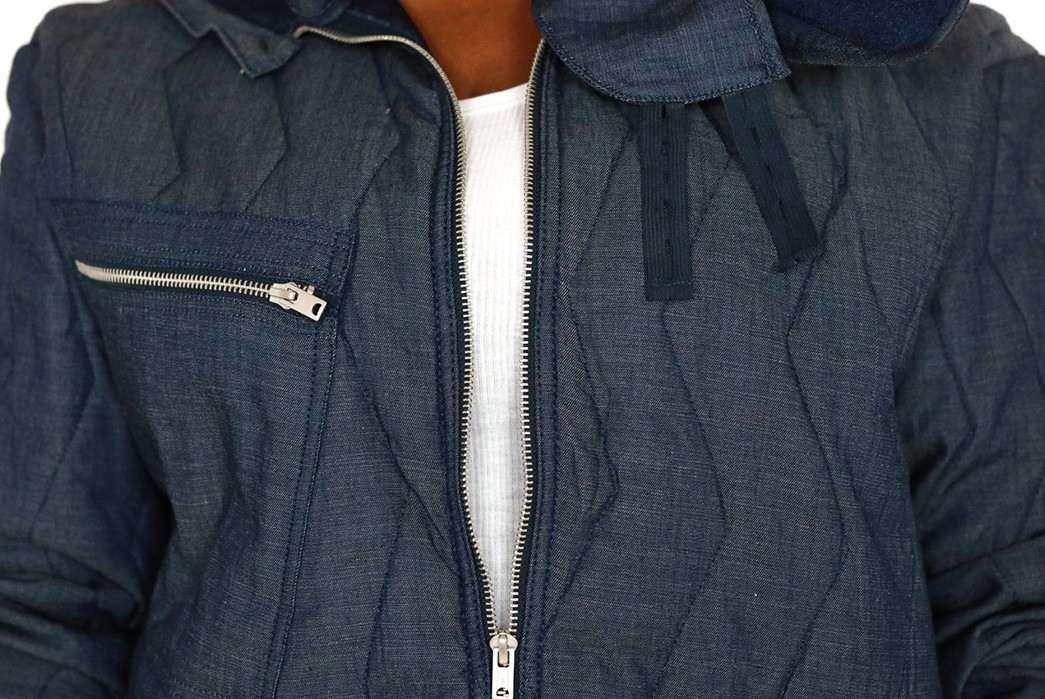
H: What are the differences in developing a collection with a smaller brand as opposed to a much larger one?
UR: We consider every customer as an individual entity. We respect them all, irrespective of their size and scale. Doing a collection perhaps won’t differ much owing to the brand size but yes it would differ certainly if a niche brand has an absolutely different target consumer and products are not conventional.
There is a learning period for each party doing things which are out of the ordinary. Gladly, we have a great design and creative team who come from very affluent backgrounds and origins including colleagues from Turkey, the Netherlands, and local champions who work together to curate best possible collections for a broad customer base.
MU: The most obvious is the quantities involved. We have large facilities that are accustomed to operating for large orders. We challenged ourselves to be more creative in how we handle workload, how we organize workforce, and the flexibility in which business is done.
I would also like to point out that smaller does not mean less work. We are still responsible for meeting customer and vendor standards. Particularly, when new or young brands have department store vendors it can be a challenge to work through DS standards, but we are here to also help support designers/brands in developing and meeting them.
ED: In addition to these points in fact we have to give the same effort in producing the prototypes, samples as well as the production and for a huge size company it is not simply about making money but more supporting what we believe in.
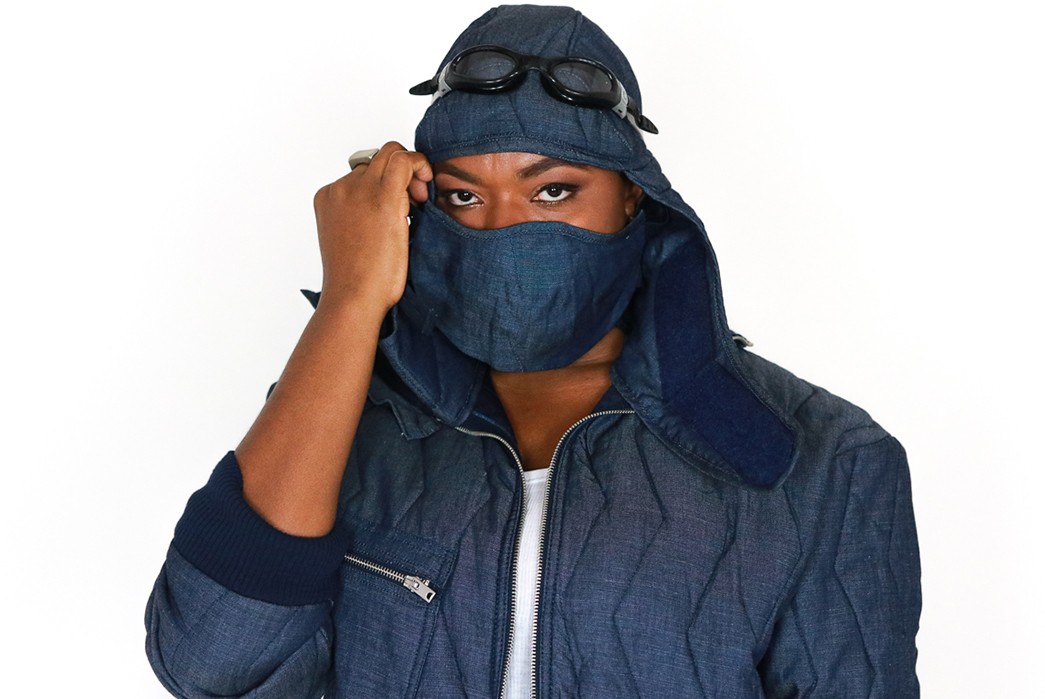
H: Are there any pieces in the O&A collection that took additional development or required new techniques to produce?
ED: The process itself required communication across timezone & cities. At times we had meetings where Miko and Melissa were up at 7am and other it would be almost bedtime in Karachi or Turkey. No-one complained (coffee did help) as we loved discussing the next phase and we did work around the clock at the time of the lockdowns to deliver the collection on time to hit its success story. This was truly amazing.
MU: Miko & us, we were all surprised how quickly this collection needed to be developed in, so we did not have the luxury of time. Soorty made the O&A signature coveralls along with military inspired quilted jackets, joggers, and caps. We made sure to offer Miko sustainable fabrics, including Tencel™, Refibra™ or hemp blends, and existing stock/deadstock fabrics.
Overall, the biggest challenge with the initiation of this project was the mix of time constraints and having to work around the limitations caused by COVID.
UR: The collection we did in the first phase for O&A is quite un-traditional. It encapsulates Miko’s vision of freedom for every man and woman and greatly admires the contribution of the Black community for fashion. Every piece of collection reflects the persona and attitude of a free spirit who cares to be known for what he/she is.
The genderless collection also speaks on gender diversity in society in general. From the product standpoint, we took great care in making the fabric selection ensuring it has responsible elements. We worked meticulously on executing the styles as designed by Miko and ensured that every piece gets the due detailing.
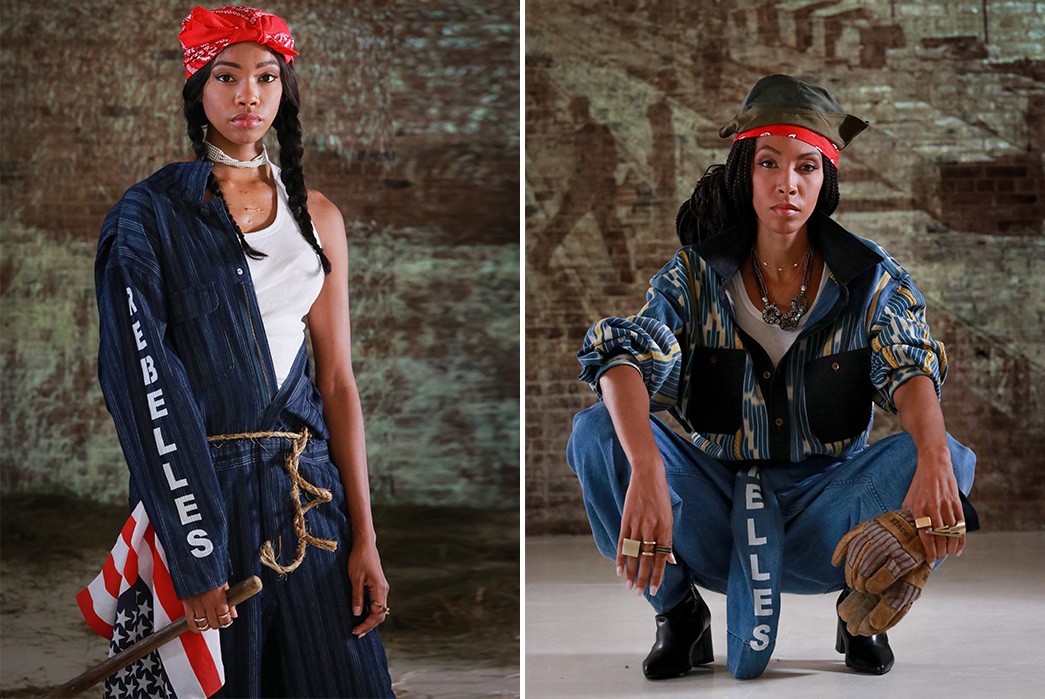
H: Are there any other smaller brands you’ll be working with in the future?
ED: We are currently expanding our operations in the US and are offering our services in support of the circularity transformation of the denim and jeans industry.
Soorty has invested in its circular products and processes through its investments and have launched multiple initiatives such as the Cradle to Cradle Denim as well as Jeans, Smart Indigo where we only apply sustainable laundry processes with the integration of our DenimKind factory where we believe the future of jeans will be manufactured.
Although we do not have a specific brand we would be willing to support smaller brands who are looking for a sustainable supply chain partner.
The Oak & Acorn collection will be available this this spring. Be sure to check out our discussion with O&A’s founder and designer Miko Underwood as well.
